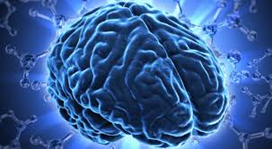Scientists Discover New Secrets about the Neurological Disease Epilepsy
 Researchers at the University of Copenhagen and Rigshospitalet have been working hard to uncover secrets about epilepsy, a neurological brain disorder caused by a malfunction in brain cells. They were able to discover the exact neurons affected by this disease and published their findings in Nature. The recently discovered neurons may contribute to epileptogenesis, which is when a normal brain develops epilepsy, making these neurons the ideal treatment targets. This could lead to a breakthrough in personalized medicine-based treatments for patients who suffer from epilepsy and the seizures associated with the disease.
Researchers at the University of Copenhagen and Rigshospitalet have been working hard to uncover secrets about epilepsy, a neurological brain disorder caused by a malfunction in brain cells. They were able to discover the exact neurons affected by this disease and published their findings in Nature. The recently discovered neurons may contribute to epileptogenesis, which is when a normal brain develops epilepsy, making these neurons the ideal treatment targets. This could lead to a breakthrough in personalized medicine-based treatments for patients who suffer from epilepsy and the seizures associated with the disease.
Epilepsy and Seizures
One common misconception is that seizures equate epilepsy, but that is not the case. Epilepsy is characterized by spontaneous and reoccurring seizures that are generated in the areas of the hippocampus or cerebral cortex, whereas individuals can have a seizure due to high fevers, low sugar, or a brain concussion. In other words, epileptic seizures are caused by bursts of abnormal electrical signals that temporarily interrupt normal electrical brain function or when there is an imbalance between the excitation and inhibition states. So, what does this mean? It means that groups of neurons in the brain become hyperexcitable and poised to abnormally discharge.
Cell Analysis
In earlier studies, scientists would typically take a piece of the brain and study it as a whole. The neurons from the studied section of the brain were analyzed together and called a “neuronal soup”. This “soup” proved to be quite difficult to dissect and understand, since the diseased cells and healthy cells were all mixed in a bowl.
However, researchers from the Khodosevich Group found an alternative method to be a bit more efficient. “By splitting the neurons into many thousands of single cells, we can analyze each of them separately,” says Dr. Konstantin Khodosevich. After analyzing each cell, the team can then rate the cells from least affected to most affected by epilepsy. Thereby identifying molecules that can target these cells as potential effective drug candidates.
In conclusion, cell analysis can help in understanding the regulation of gene expression and the role it plays in epilepsy. It has been noted that a couple hundred genes change in epilepsy, and this study proves that thousands of genes, in different neurons, change their expression in epilepsy and found that most of those contribute to epileptogenesis.
Related Research
Do you work in the field of neurological research? If so, you may be interested in viewing our neurobiology reagents. Some of the other reagents that are related to Epilepsy include:


